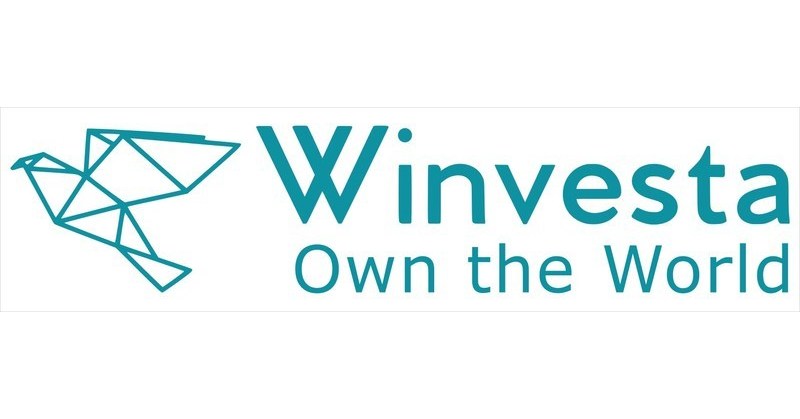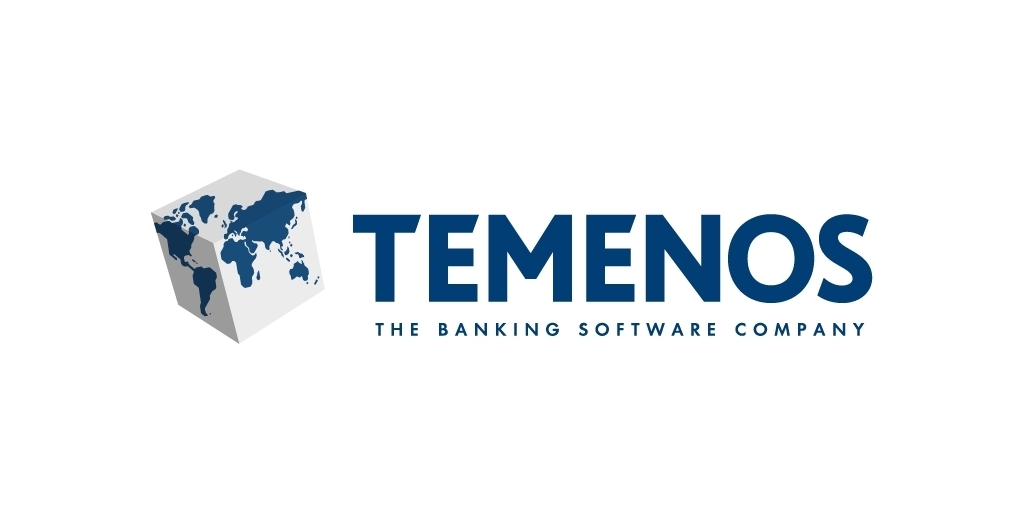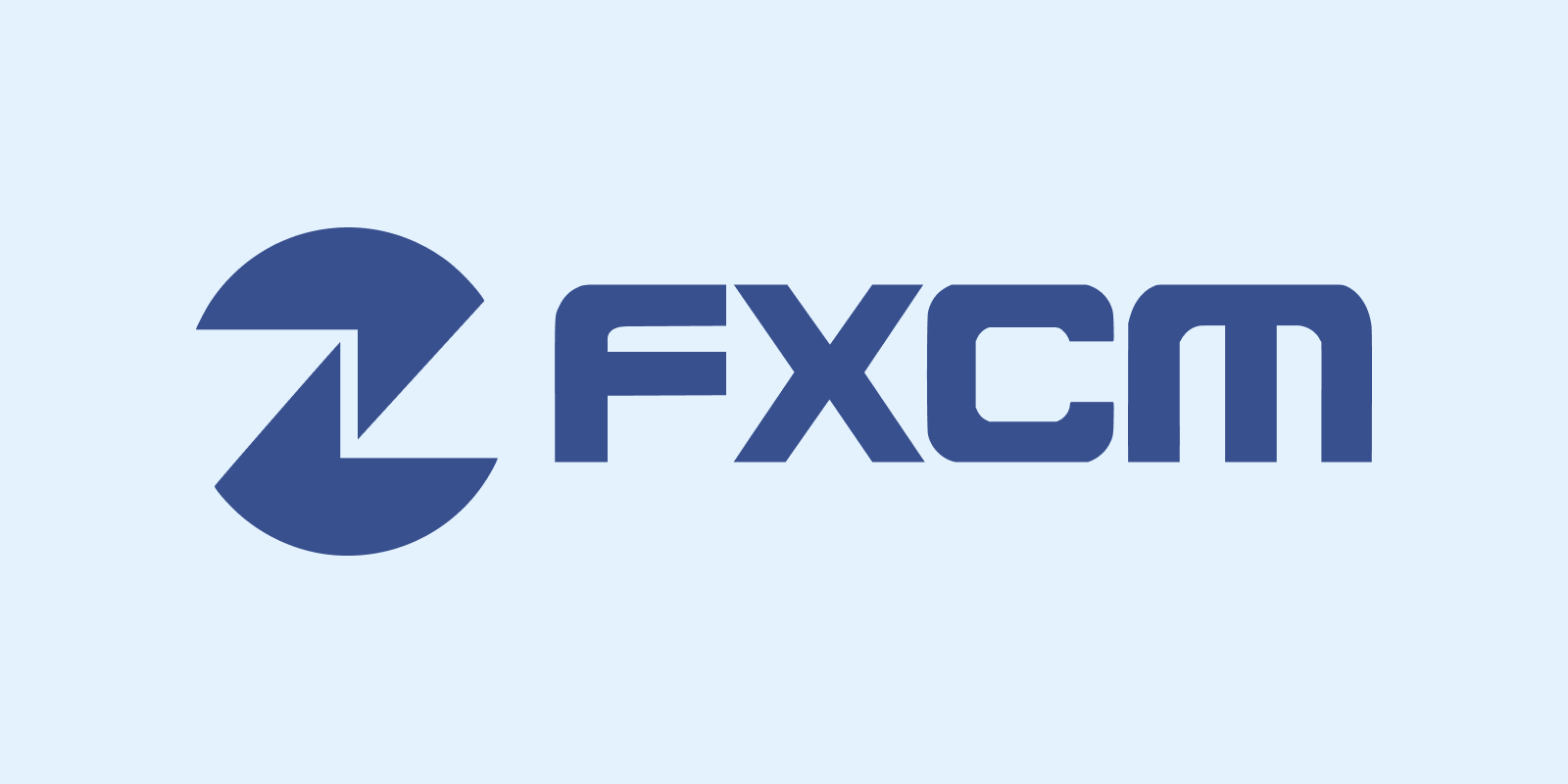Published
- 02:00 am

This additional offering will help provide Indian exporters with an alternative payment gateway offering and reduce export costs by up to 8%
The UK headquartered Winvesta, a neobank building cross-border banking and wealth management, has launched foreign payment collections for Indian exporters. The service comes as an extension of the existing multi-currency banking facility for Indian individuals. Businesses receive virtual accounts in 30+ currencies, including USD, GBP, and EUR. The accounts serve as collection accounts for service exporters to receive payments, which are then converted to INR and deposited into their Indian bank accounts the same day.
With this launch, Winvesta is providing exporters with an alternative to payment gateways that cost up to 8% of the amount collected. With Winvesta, exporters spend 1.50% in total collection costs, saving them up to over 80% in fees. Merchants get local account details in US, UK, and Europe, which means the buyers only have to do a local transfer to the exporter’s account. Winvesta supports payment collections from 180+ countries in 35+ currencies.
Swastik Nigam, Founder and CEO, Winvesta, said, “We are extremely excited to launch foreign collection accounts for businesses. Many Indian businesses get a raw deal. The collections are expensive, delayed and opaque. Much of that money never made it to Indian shores. With this launch, we change that. “
“While it was always a part of our larger vision, we are proud to have been able to offer it in such a short period of time. India’s cross-border flows are over $800Bn annually, and we want to make it easier for MSMEs to bring home more of what they earn overseas. We are receiving tremendous feedback from the early adopters. We are also receiving great interest from many domestic partners.”
SME exporters’ share in overall exports from India has been rapidly growing and is now close to 50% of total exports. This includes both service and goods exports. Improving logistics and easy e-commerce platforms have helped Indian businesses expand globally rapidly. At the same time, borderless marketing tools and collaborative platforms have led to a boom in digital exports from the service industry.
Prateek Jain, President, Winvesta, said, “Cross-border collections, unfortunately, lagged the rapid boom in exports from the SME segment. This leads to these businesses losing upto 0% of their margins in fees for collections, or worse, having the funds stuck in the process with no visibility. Winvesta’s mission is to simplify cross-border finances for everyone, whether individuals looking to invest overseas or an exporter looking to get paid by a foreign buyer. With India crossing the $400 bn mark in exports for the first time in a fiscal year, it not only marked a key milestone but also helped us realise the potential for such an offering at this point in time.”
Winvesta collection accounts have a one-time refundable setup fee of Rs. 499 ($25 for corporates), with no monthly fees. There are no fees to collect money in the accounts or to withdraw funds to an Indian bank. Foreign funds are converted to INR at a very low spread of 1.50% from interbank rates. With significant volumes, these rates can fall further.
Related News
- 04:00 am

In his annual letter to shareholders, JPMorgan Chase CEO Jamie Dimon warned that incumbent banks are grappling with a “diminishing role” in the global financial system, largely due to outside competition.
Competitive threats overview: Dimon argued that the relative influence of big US banks has tumbled, comparing 2010 data with 2021 data.
- The collective market capitalization of the US biggest incumbents—defined as those labeled as US Globally Systemically Important Banks (GSIBs)—grew from $800 billion to $1.5 trillion.
- The combined market capitalization of four big US tech companies—Apple, Google, Amazon, and Facebook—grew by much more, surging from $500 billion to $6.9 trillion.
- Banks’ share of mortgages originated crashed, dropping from 91% to only 32%. Meanwhile, nonbanks’ share surged from 9% to 68%.
- Private and public fintechs had no market capitalization data available for 2010, but in 2021, combined for $1.2 trillion.
- Neobanks also lacked available user stats for 2010, but held a collective 50 million accounts in 2021.
- Assets under management (AUM) of shadow banks, including hedge funds and private equity, skyrocketed over the period, from $3.1 trillion to $9.7 trillion. The private credit market also grew from $14 trillion to $20.4 trillion.
Dimon called out some competitors by name.
- Walmart: Dimon noted that over 200 million people use its stores weekly and that it’s able to roll out financial products. It’s backing a nascent fintech, Hazel, which will include neobanking and be broadly available to customers.
- Apple: He pointed out it already offers Apple Pay and Apple Card and plans new offerings ranging from buy now, pay later (BNPL) to credit risk determinations.
- Vanguard, Fidelity, and Charles Schwab all offer banking products.
Dimon also blamed regulations for hampering banks’ competitiveness. For example, he noted that neobanks have avoided the Durbin Amendment in the US while garnering fees from debit card transactions.
Tech spending rationale: Dimon defended the banking giant’s tech spending, which some investors have privately criticized while seeking more details.
- He said JPMorgan will have almost $2 billion in “incremental expenses” this year related to tech—and he previously said it plans to spend as much as $12 billion in 2022. Our new forecast shows the bank allocating $10.10 billion for this year, excluding salaries.
- He said the spending should be assessed according to its impact and how it affects competitive standing, customer satisfaction, and adding market share.
- He also noted that tech investments can, in turn, generate investment opportunities.
Dimon also gave examples of recent expenditures:
- Data center spending increased, with an outlay of $2.2 billion to build new ones, but Dimon noted the bump is mainly driven by the “duplicative expense” of having both old and new data centers.
- Payments modernization has accounted for over $1.5 billion of expenses, including technology, since 2016. However, Dimon pointed out this led to $4 billion in new annual revenue and boosted the bank’s Treasury Services market share from 4.5% to 7.2%.
- JPMorgan developed more than 1,000 application programming interfaces (APIs), which Dimon noted that business customers can use “to automate our banking systems into their enterprise systems.”
The big takeaway: Dimon’s case for JPMorgan’s tech spend is reasonable and provides greater context than initially reported cash outflows.
- Shareholders need to consider the savings and revenue that tech generates as well as upfront costs. A less short-sighted view helps investors understand longer-term payoffs.
- Well-received products and customer experiences help JPMorgan’s reputation with consumers who can, if dissatisfied, take their business to neobanks—or eventually, to Walmart and Apple.
- The tech section of the CEO’s letter also shows the power of shareholders, who have prompted Dimon to offer a greater disclosure and may have inadvertently helped foster greater buy-in for future tech initiatives.
Related News
- 01:00 am

Battle Financial, Inc. chooses Temenos core banking and payments to offer deposits, FX and precious metals accounts
Temenos, the cloud banking platform, today announced that Battle Financial, Inc. has selected Temenos Banking Cloud to underpin the global markets technology stack for Battle Bank. With Temenos core banking and payments solutions, Battle Bank will be able to offer its clients a diverse set of opportunities in F.D.I.C. insured foreign currency and market index deposits and the ability to acquire, store, and borrow against non-F.D.I.C. insured precious metals.
Battle Bank is expected to launch in the second half of this year, pending regulatory approval. The bank is led by two pioneers in the banking industry, Frank Trotter and Vincent Amato. Both were part of the former group of founders of everBank.com.
“We’ve created Battle Bank to fill a widening gap in the traditional banking landscape -- to offer high-yield interest accounts coupled with access to the world markets. To make that vision a reality, we need technology that is fast, open, and scalable as we continue to grow our offerings. This partnership with Temenos will provide exactly that, making our clients’ experience as seamless and efficient as possible,” said Frank Trotter, President and Board Member of Battle Financial, Inc.
Temenos’ platform for composable banking will serve as the foundation for Battle Bank’s foreign currency, market-index, and precious metals products. Using Temenos’ model bank methodology and the pre-composed banking services, Battle Bank will be able to quickly roll out its world markets division offering innovative solutions with hyper-efficient cost structures.
“We are building Battle Bank to offer exceptional banking values and unique investing offerings,” said Vincent Amato, Chief Operations Officer of Battle Financial, Inc. “With Temenos, we know that it’s possible to launch fast and scale quickly. The unprecedented breadth, depth and scale of the platform’s modular banking capabilities creates opportunities for our customers to prosper through a diversification of financial holdings with us.”
Max Chuard, Chief Executive Officer, Temenos, said: “At Temenos, we have a vision to power a world of banking that opens opportunities for people to achieve their ambitions. We are delighted that Battle Financial will use the Temenos Banking Cloud to launch fast and deliver on its mission to help its clients take control of their financial future and build their wealth. Temenos Banking Cloud is the platform of choice for challenger banks worldwide, and this signing with Battle Financial continues our strong growth and customer success in the US market. Temenos’ cloud platform will pave the way for innovation, empowering the bank to deliver new products that challenge how we think of investing and offer seamless experiences to customers.”
Temenos recently announced it has exceeded the 70-neobank customer milestone – more than any other provider – and is now launching a range of new, functionality-rich banking services to cater for this fast-growing segment.
Related News
- 08:00 am

FXCH (Hong Kong) Ltd. has partnered with 24Exchange (Bermuda) Ltd. to offer a Clearing and Settlement option to Crypto cash institutional market participants. The service, available to all 24Exchange members, provides the first clear demarcation between trade execution, margin/risk management and settlement for the Crypto asset class.
FXCH Ltd. operates a real time netted Clearing House model for Institutions who trade digital assets on multiple Exchanges and OTC venues.
The market utility works on the principle of managing collateralised multi-counterparty risk, culminating in one Net Settlement at the end of every trading day.
Users are afforded x3 leverage and real time cross-asset and cross-venue netting of positions, without the requirement to transfer assets prior to settlement, and therefore greatly reducing both systemic risks and cost of capital.
In summary the Clearing House concept paired with 24Exchange's trading platform liquidity and renowned fast matching technology allows market participants to exchange their exposure at the lowest possible cost and manage their settlement with the highest level of funds and operational safety.
Dmitri Galinov, 24 Exchange CEO and Founder, said, “We are pleased to join with The Foreign Exchange Clearing House to help our institutional clients manage settlements of their cryptocurrency trades on our robust platform. Through this partnership, sophisticated institutional market participants around the world who trade crypto assets on 24 Exchange can access fast, low-cost clearing and settlements with the highest levels of confidence, security and efficiency.”
Related News
- 03:00 am

5ire, the 5th generation blockchain network, announced today that social innovation expert Dr. Richard Swart, celebrity talent manager Jamie Gold and former Senior Advisor to the Nobel Peace Prize Forum, Ed Martin, have joined its team as strategic advisors.
Dr. Richard Swart is an expert on global challenges and the application of technology to create greater access to capital. His interests and expertise are a perfect fit with 5ire’s realization of the fifth industrial revolution and its commitment to personalization, human-centred design, and deep integration of the UN sustainable development goals in 5ire’s technology. Ed Martin has been an executive to top tier companies like Kellogg’s, Coca-Cola, Citigroup, Ford, and Hershey, and has deep insights in a variety of verticals. Jamie Gold, a gaming, content, and event producer, has been a prolific dealmaker on behalf of tech companies and an avid supporter of blockchain as a revolutionary technology.
Pratik Gauri, Co-Founder and CEO, 5ire, stated “The combination of field experience and knowledge that these top-tier performing executives bring to the table will help rocket 5ire into the fifth industrial revolution. We’re honored and excited to have them on our team as strategic advisors, and are already seeing the benefits of their insight and support.”
“I am honored to join the 5ire team,” Dr. Swart said when it was announced that he’d be joining 5ire as a strategic advisor. “As a leading layer 1 blockchain company pushing the boundaries of both technology and social impact, this company is poised to have a massive impact on the ways blockchain technologies can be deployed.”
Upon joining 5ire, Gold shared, “Next to philanthropy, sustainability has been a great passion, and I am delighted to be joining a team that is fully committed to bringing about the change in our outlook from for-profit to for-benefit economy. I look forward to working with and advising 5ire’s success in bringing sustainability to the fore of mainstream conversations. 5ire can provide blockchain and crypto access for everyone as a trailblazer in this space!”
From the outset, 5ire has been focussed on implementing the United Nations 2030 Agenda for Sustainable Development. They’ve produced 5ireChain, an innovative blockchain technology with the UN SDGs written into its core. Non-financial factors such as environmental, social, and governance scores are weighted in the 5ireChain ranking protocol, impacting a node’s participation in the 5ire network.
By incorporating sustainability into the network’s base layers with its blockchain technology rankings, 5ire is building a for-benefit economy and embodying the fifth industrial revolution, creating a net positive impact on the planet and serving humanity.
Related News
- 07:00 am

Integration with Portware EMS enables more efficient and transparent bookbuilding and price formation for Buyside Traders
Appital, the Equity Capital Marketplace, today announced an integration with FactSet’s Portware Enterprise Execution Management System (EMS), giving clients access to Appital’s revolutionary bookbuilding platform.
The integration of Appital’s bookbuilding platform in FactSet’s Portware Enterprise EMS automates what has traditionally been a highly manual process, while at the same time giving buyside traders the ability to place very large orders or participate in unique liquidity opportunities.
FactSet, a global provider of integrated financial information, analytical applications, and industry-leading service, has a strong history of innovation, and its multi-asset class Portware Enterprise EMS helps the world’s largest asset managers and hedge funds navigate the challenges of complexity and scale with embedded analytics, sophisticated decision support, and state-of-the-art automation. Sparked by continued demand from these clients, the integration with Appital will offer buyside clients a more efficient and transparent way to execute large-in-size orders with minimal market impact or risk of price erosion.
By working with a pioneering firm like FactSet, Appital is driving the technological infrastructure development necessary to bring innovation and automation to equity capital markets by integrating their platform into existing market structures. Appital gives the buyside community greater exposure to deal flow opportunities they have not been able to access before. Buyside traders looking to execute large orders in excess of five days ADV, including in highly illiquid, small and mid-cap stocks, have access to real-time visibility, full transparency, and maximum control over the bookbuilding and deal distribution process.
Rob Watts, Director, Strategy and Product Management, Trading Solutions at FactSet, commented: “The buyside is constantly looking for innovative ways to optimise execution, and liquidity discovery is crucial for our clients, particularly in less liquid markets. Appital automatically alerts them to new liquidity opportunities within Portware, enabling them to efficiently execute size without information leakage.”
Brian Guckian, Chief Development Officer of Appital, said: “Our mission is to put buyside firms in control of their bookbuilding activity. Bringing the bookbuilding process inside the EMS infrastructure with FactSet’s Portware is a significant step forward, reducing the risks inherent in the traditional phone and email processes. They can proactively source liquidity and efficiently drive the bookbuilding process in real time on one automated platform.”
Appital is currently onboarding asset managers onto its platform in preparation for launch in 2022 and has established a working group that includes some of the world’s largest asset managers. The group helps mutual clients define how they want to interact with hard-to-find liquidity in the market and proactively build books of demand, while ensuring that integration to existing workflows remains seamless. EMS providers are now able to code to established, FIX-based protocols for the overall benefit of the buyside community.
Through integration with Appital, buyside firms will also have access to the liquidity and efficiency of executing on Turquoise, LSEG’s (London Stock Exchange Group) pan-European multilateral trading facility (MTF) with seamless straight-through-processing (STP) to over 20 settlement venues.
Related News
- 06:00 am

» Financial firms face increased risks via four main channels: commodity price shocks; business disruption; liquidity tightening and market volatility; and security and operational risks
» Banks in the Baltics and in the Commonwealth of Independent States are most exposed to spillover effects from the military conflict and have limited buffers to absorb the impact if it is prolonged
Russia’s invasion of Ukraine is causing a commodity price and supply shock that will lead to higher interest rates and slower growth, increasing risks for banks and other parts of the finance sector, Moody’s Investors Service said in a report today.
“Under Moody’s baseline scenario, GDP growth for the G-20 economies will be 3.6% in 2022, down from our 4.3% forecast in February,” said Olivier Panis, Senior Vice President at Moody’s. “Growth will further fall to 3% in 2023. Growth could be even lower under a downside scenario assuming a sharp halt in oil and gas exports to Europe from Russia, a liquidity squeeze and widespread economic recession.”
The finance sector faces increased risks via four main channels: a commodity price shock, led by surging oil prices; business disruption, mainly caused by prolonged supply chain hold-ups; liquidity tightening and market volatility; and security and operational risks.
“Banks in the Baltics and in the Commonwealth of Independent States are most exposed to spillover effects from the military conflict and have limited buffers to absorb the impact if it is prolonged,” said Panis. “European, African and Turkish banks, aircraft lessors, non-life insurers, US non-bank residential mortgage lenders and business development companies are at highest risk under Moody’s downside scenarios.”
North American banks and Asian banks have limited sensitivity to the main channels of risk. Given the modest expected slowdown in GDP due to the Russia-Ukraine conflict, Moody’s expects little impact on North American banks’ loan performance. Economic growth in Asia-Pacific will be modestly weaker than previously anticipated due to the surge in energy costs and slower growth in key export markets in North America and Europe. The impact on the region’s banks will be limited, thanks to their solid capital and liquidity.
Subscribers can access the report at: http://www.moodys.com/researchdocumentcontentpage.aspx? docid=PBC_1323908
Related News
- 04:00 am

FCA-approved fintech StepEx agrees “first of many” institutional deals seeing professional training providers sell regulated Future Earnings Agreements
StepEx, an FCA-regulated fintech that provides the infrastructure for universities, business schools, and technical and professional/vocational course providers to offer qualifications in exchange for a share of students’ future earnings, has agreed a world-first deal for a financial institution to buy the receivable assets.
Barclays Anthemis will invest an initial £500,000 into regulated Future Earnings Agreements (FEA) assets via a special purpose vehicle (SPV), with the right to extend the investment to £10 million. This is the first of a number of such deals that StepEx plans to do with asset managers.
Founded in 2017, and the only FCA-approved provider of FEAs, StepEx enables individuals who would otherwise be priced out to pursue the top academic, skills-based, and professional/vocational qualifications demanded by employers. Students pay a percentage of their earnings for a fixed period - based on StepEx’s forecast of their expected earnings - starting only once they cross an agreed salary threshold upon completion of their course.
StepEx charges course providers an up-front fee per student, and takes a small commission on each monthly repayment. The company has built the largest dataset of graduate earnings, which it combines with Open Banking data and a machine learning model to reliably predict and verify an applicant’s future earnings.
The deal with Barclays Anthemis will primarily focus on IT bootcamps, enabling training providers to immediately boost cashflow to fund expansion plans. The market in the UK and Europe for financing the cost of professional skills qualifications is estimated to be worth £300 billion, and extends beyond IT to areas such as pilot training and law schools.
StepEx is already working with around 80 per cent of IT bootcamp providers in Europe, including international coding schools Le Wagon and Ironhack, as well as Makers Academy, CAPSLOCK, and Manchester-based North Coders. It also has agreements in place with London Business School and INSEAD, two of the top three business schools in the world.
StepEx founder and CEO Daniel George said: “Aside from being the first of its kind, this deal signifies the ability for training providers to cash in these receivables. This means that rather than being locked in to receiving payment for courses over a longer period, they can free up cashflow to invest in expansion - all of which will help to solve the skills crisis by giving more people who are less wealthy an opportunity to change their earning potential.
“At a macro level there is a huge need to find solutions to IT skills shortages, both in the UK and across Europe. As part of the Autumn Budget in October 2021, the UK Government announced its ambition to quadruple the number of people trained in technical fields such as artificial intelligence and cybersecurity, with an emphasis on bootcamps. To grow that training capacity almost overnight requires significant capital firepower. We are the only ones in the world to hold these regulated assets, and know that institutions want innovative products unaffected by traditional market fluctuations. We are delighted Barclays Anthemis has taken this step now - it validates our proposition, and will be the first of a number of deals like it.”
Farhan Lalji, Managing Director at Anthemis, said: “Broadening access to technical skills education is critical to ensuring as many people as possible are included in the economy of the future. The potential social impact of Future Earnings Agreements is enormous - that, combined with their reliability as an asset, makes them an attractive investment. We’re excited to be the first institutional investor to back this financing model, and to have the opportunity to take our initial commitment as far as £10 million.”
CAPSLOCK co-founder Jon Slater, said: “Future Earnings Agreements have helped CAPSLOCK remove one of the biggest barriers to career-changing education, which is large up-front tuition fees. Offering FEAs can come with cashflow limitations, though, and our ability to scale to meet demand is stunted because of this. By collaborating with StepEx to receive up-front fees, we can now provide this opportunity to as many people as possible without such limitations.”
Related News
- 08:00 am

National property sales and lettings company DAPS UK has partnered with leading anti-money laundering specialist SmartSearch.
The company, which will shortly be opening its seventh UK office, is the latest property-related business to sign up to the SmartSearch digital customer verification and screening system.
Martin Cheek, managing director at SmartSearch, said: “DAPS UK is the latest property company to sign up to our digital platform, which is now used by over 1,000 estate agents and property-related businesses.
“We are anticipating further partnerships with businesses in the property sector, as in addition to the importance of being fully compliant with regard to anti-money laundering there is now the added pressure of checking for sanctioned companies and individuals following Russia’s invasion of Ukraine.”
Companies in the property sector which use the state-of-the-art SmartSearch platform, include JLL, Winkworth, and Alto, the cloud-based software for agents which is part of Zoopla.
DAPS UK – which stands for Darren Anderson Property Services – is headquartered in Birmingham, and also has offices in the Black Country, Manchester, Liverpool, Dorset, and London. It will be opening a seventh office in Manchester South later this month.
Darren Anderson, managing director at DAPS UK, said: “We handle both sales and lettings, and with seven offices the volume of work involved in conducting identity checks was becoming overwhelming so we decided to invest in electronic identity digital verification to simplify the process and give us extra security.
“After researching different providers, we chose SmartSearch because it offers next generation identity verification and security, and gives peace of mind to our landlords.”
The SmartSearch service is available on a single platform via a browser or API, with full sanction, politically exposed person, adverse media screening and then ongoing monitoring.
It is the only organisation with the ability to verify individuals and companies in the UK and internationally, and recently launched a new service that enables businesses to check clients for residency in Russia, Belarus, and other high-risk countries.
For more information please visit: www.smartsearch.com
Related News
- 06:00 am

The Warsaw Stock Exchange opts for Infor Dynamic Enterprise Performance Management system for the GPW Group. Cogit will be responsible for implementation.
Infor, the industry cloud company, announced today that GPW Group, which operates the Warsaw Stock Exchange, has selected Infor Dynamic Enterprise Performance Management (d/EPM) cloud-based software to support its planning and budgeting process. Cogit, one of Infor's leading European partners, is responsible for implementing the software within a year.
“Infor Dynamic Enterprise Performance Management is designed to manage complex business processes. It offers real-time full visibility into a business, allows for reliable planning, reporting, measuring past and current performance, predicting future activities, and much more," explains Barbara Najgebaur, Infor’s channel account manager for Poland.
Learn more about Infor Dynamic Enterprise Performance Management (d/EPM): https://www.infor.com/solutions/financials-3/enterprise-performance-management
The GPW has decided to use a multitenant cloud system that integrates closely with the Infor OS (Operating Services) platform. This allows the implementation of new functionalities or innovations without disrupting daily operations. It also offers full reliability and ensures world-class levels of security, which factors are particularly important for financial institutions. The purpose of the new system at the GPW Group is to enable better efficiency and risk management, and to improve the decision-making process across the organization. Key areas supported by Infor's cloud solution include planning, monitoring and reporting, as well as management consolidation and procurement support in an integrated and scalable model.
“Our tasks include comprehensive design, parameterization and configuration of the system, along with its maintenance and development in all companies of the GPW Group. The project anticipates all the crucial processes to be launched this year, so they can be used in preparing GPW Group budget for 2023,” explains Radosław Kozieja, CEO at Cogit.









